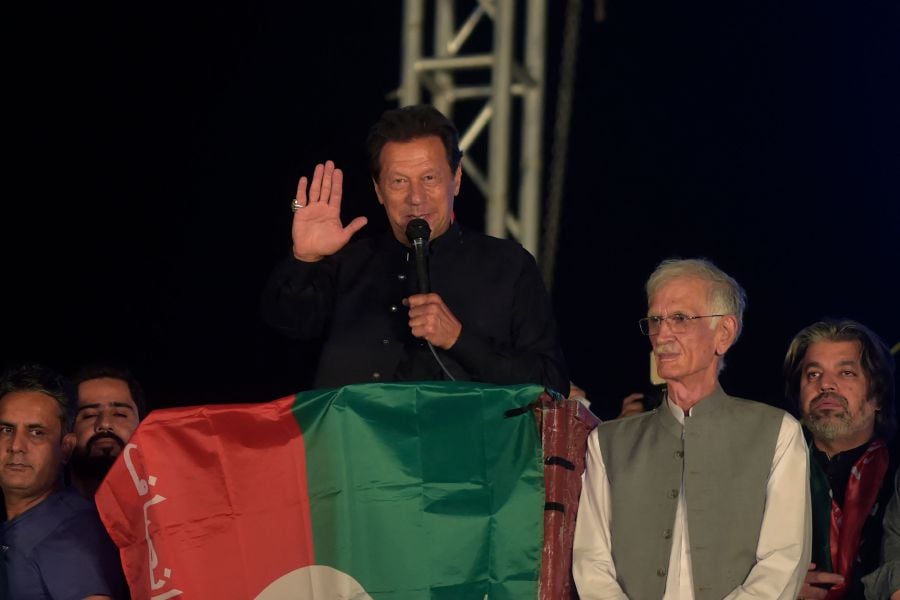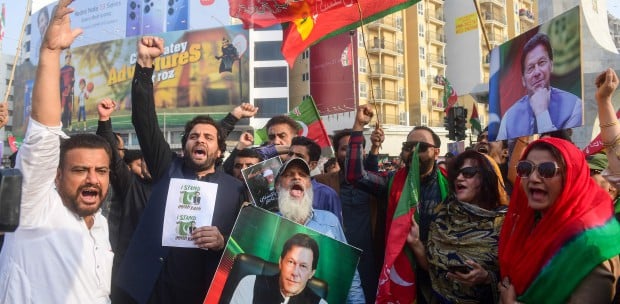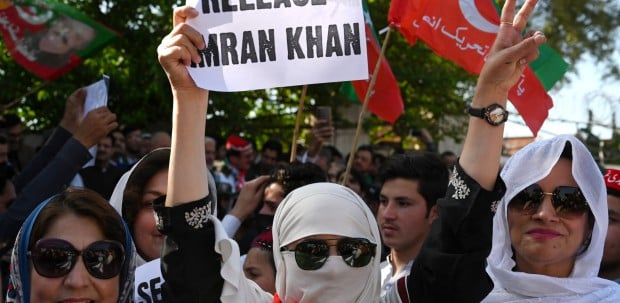I AM no cricket enthusiast. The names of the sporting legends in that world are, therefore, unknown to me.
I was not aware of Imran Khan until he appeared on my horizon in 1992. Pakistan, with Imran as the team captain, won the 1992 Cricket World Cup.
Born to a Pashtun family in Lahore in 1952, Imran began his international cricket career at age 18, in a Test series against England.
He continued playing until 1992, when Pakistan won its first World Cup.
Hailed as a cricket legend, he was inducted into the ICC Cricket Hall of Fame.
He entered politics a few years later, founding his own party, Pakistan Tehreek-eInsaf (PTI). It won a seat in the National Assembly in 2002, and he served as an opposition member from Mianwali until 2007.
In the 2018 general election, PTI emerged as the largest party in the National Assembly, enabling it to form a coalition government. Imran became the 22nd prime minister of Pakistan.
Imran was subsequently named one of 'Time' magazine's 100 Most Influential People of 2019.
On June 25, 2020, he came under criticism for calling al-Qaeda founder Osama bin Laden a martyr. He had consistently said that Osama was not a terrorist.
In October 2020, Imran spoke out about extremism and violence against Muslims across the globe. In an open letter he urged Facebook's chief executive officer Mark Zuckerberg to ban Islamophobic content on the platform.
On the home front, Imran launched an anti-corruption campaign soon after he entered office.
People criticised the campaign, saying it targeted political opponents. But Imran's supporters argued that the campaign was genuine because senior members of his own ruling party had faced investigation or prosecution.
In foreign relations, Imran reset Pakistan's ties with Gulf states (including the United Arab Emirates and Saudi Arabia), with the UAE agreeing to roll over Pakistan's debt.
Imran also made a three-day visit to Saudi Arabia. The relationship with the kingdom had been tense due to Pakistan's unwillingness to contribute militarily to the Saudi Arabian–led intervention in Yemen.
Imran had also improved ties with Kuwait and Qatar, bringing immense benefit to Pakistani nationals who sought employment in these two Gulf states.
On the Kashmir issue, Imran had stated that no talks would be held with India until autonomy was restored.
In August 2021, he celebrated the departure of the United States from Afghanistan, describing it as Afghans breaking "the shackles of slavery".
While the above-mentioned information may not be regarded as the best report card of a new prime minister, it is certainly impressive. It leaves me wondering what exactly drove the opposition to seek a no-confidence vote against Imran recently.
On April 3, 2022, in an address to the nation, Imran announced that he had advised the president to dissolve the National Assembly.
Under Article 224 (A) of the Pakistani constitution, an incumbent prime minister continues to hold the office on an interim basis until a caretaker prime minister is appointed.
On April 10, a no-confidence vote was conducted and Imran was ousted, becoming the first prime minister in Pakistan to be removed from office in such a manner.
In Pakistan's 75-year history, no prime minister has ever completed the full term of five years.
BBC correspondent Secunder Kermani wrote: "When Imran Khan was elected prime minister in 2018, he seemed to have almost everything in his favour.
"A national hero from his cricketing days, he had transformed into a charismatic politician and, after years of struggle, managed to supplant the two rival established political dynasties that had dominated Pakistan for decades.
"He emerged as a fresh force, with vibrant rallies full of catchy songs which, along with his huge social media presence, amplified his staunch anti-corruption message."
The correspondent said the reason why Imran's position appeared so secure at the beginning of his premiership is also the reason for his downfall.
Although both sides deny it, it had been widely acknowledged that Imran came to power with the help of Pakistan's powerful army and intelligence services, but now it appears he has fallen out with them.
Journalist Kamran Yousaf told the BBC that the military had been involved in "managing" Imran's allies and slim majority in government.
In bidding farewell to the Imran Khan era, Bilawal Bhutto Zardari (leader of the opposition Pakistan People's Party and the son of assassinated former prime minister Benazir Bhutto), said: "Welcome back to old Pakistan. Democracy is the best revenge."
The National Assembly has 342 seats, 168 of which are held by Imran and his allies, giving the new prime minister Shehbaz Sharif (174 seats) a slim majority.
Some political analysts say that while Imran's tenure as prime minister has ended, "his politics may become stronger".
The writer, a former federal counsel at the Attorney-General's Chambers and visiting professor at Universiti Teknologi Malaysia, is now a full-time consultant, trainer and author






